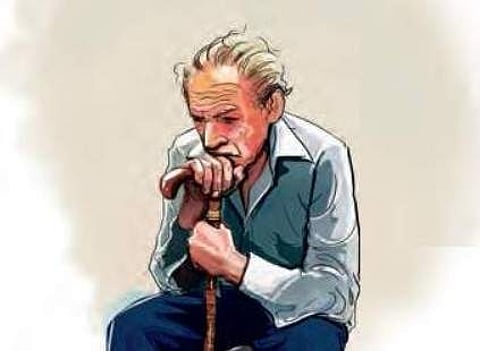

All these years, we have heard of India’s demographic dividend, referring to our higher percentage of young working age population, especially when compared to the ageing developed economies. Ample debates have focused on whether the population was a problem or an advantage. What we now need to look at is the future of this young generation that is steadily moving towards old age. As per 2019 data, India had about 139 million people above the age of 60. That is about 10 per cent of our population, and it is not a small number. Given the improved health facilities, we are living a lot longer than our immediate ancestors.
People having formal employment retire around the age of 60, while those in the unorganised sector may continue to work till their health and body allows it. The long lifespans would demand increased working years, which in turn necessitates re-organising the policies and structure of society to include more grey hair.
A lot of people in their 50s are now planning well ahead for their old age - mostly the well-placed wealthy ones, but more importantly well-informed knowledgeable ones. We hear of luxury old-age homes coming up in the hills and in places like Coimbatore or Pune. This small section of society is not waiting for the next generation to plan anything for them; they have already planned their own old age, choosing the destination and the company in which they want to spend their grown-up years. It reminded me of the care homes for the elderly that Ma Anand Sheela runs in Switzerland and other places as a business.
Tina Ambani of Reliance group used to run a magazine called Harmony as part of the Harmony for Silvers Foundation, focusing on the 55+ population, highlighting their achievements and contributions to society and needs, following the mantra of both lifestyle and empowerment. The magazine stopped publication three years ago with a promise to go online but I guess the pandemic came in the way. I hope they come back with a bang soon.
In a youth-obsessed media and start-up space, I rarely see initiatives focused on the elderly - be it for their travel requirements, social and lifestyle needs, or tapping into their experience and wisdom. Even when it comes to products like hearing aids or wheelchairs, most available in India are imported ones. With the growing numbers of the elderly not just in India, the need for these goods is bound to go up. It is a good time to invest in businesses that can produce quality products and solutions locally with minimal incremental innovation or localisation. It would benefit both the businesses as well as the elderly.
Recently, I came across a report called Index on Quality of Life for Elderly published by the Institute for Competitiveness. It looks at the data on the elderly in India, including projections for the next 30 years. The report indicates that we still have time to handle the demographic shift of population from youth to those in the working age to the retired age group. I agree it is a timely analysis of an issue that would probably peak around 2050. Having said that, even today the number of elderly people is not small. It talks about the well-being of senior citizens on four accounts - financial, social, health and income security.
What I missed in this report is the cultural integration of the elderly in society. Can new systems be evolved for this? The elderly can be cultural and emotional guardians for children growing up without parents and kids with working parents, or simply be their storytellers, listeners or playmates. They can teach based on their life experience while learning new skills from the young. Can we create spaces for the elderly to socialise with their peer group, facilitating activities that suit their age? I see one such space at a beach near me in Goa but then no one thought about the usability of an open area in a place where it rains more than six months in a year.
Traditionally, Indian family systems naturally took care of the elderly - simply by keeping them engaged in family hustle and bustle with their roles shifting with age. The cycle of taking care of the elderly continued generation after generation, till the family units scattered around the globe following the great career opportunities. This means we have family and friends around the world but maybe no one close to us to take care of us in our old age. The best solution would be to bring back the social system of families, but if that seems far-fetched, maybe we need to think of solutions at a society level. While one cannot deny the role of the government, this is not a situation that we can or should leave solely to them. Our elderly should get the love and respect they deserve, especially when it’s time for them to relax after a long work innings. We must also cherish their wisdom that comes only with age.
(The writer is author and founder of IndiTales. She tweets @anuradhagoyal)